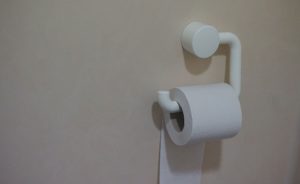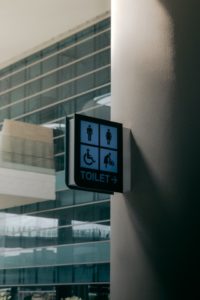In conjunction with Spina Bifida and Hydrocephalus Awareness Month, Spina Bifida Association of Malaysia (SIBIAM) presents a series of articles modified from our website (http://www.sibiam.my) and the Beyond the Cord quarterly newsletter – an initiative by the District Action Group on Spina Bifida and Hydrocephalus (DASH), Rotary District 3300. This article was originally published online (https://sibiam.my/neurogenic-bowel-management-in-spina-bifida-patients/), as part of the SIBIAM Monthly Health Webinar Series for September 2021 (https://youtu.be/4CtU4BR4lls).
 Introduction
Introduction
Neurogenic bowel is abnormal bowel function due to problems with the nervous system, whether in the brain, spinal cord or nerves. Almost all children with spina bifida have abnormal bowel and bladder from infancy. Faecal incontinence is an important factor that can result in deterioration of mental and emotional aspects of quality of life.
Neurogenic bowel results from lack of or disruption of innervation of the bowel from the brain and/or spinal cord. In spina bifida, the interruption is in the spinal cord. Nerves that control the bowel function ate at the sacral level (S1-S5). Majority of children with spina bifida have lesions the occur at or above the S2 level.
The main problems related to neurogenic bowel are constipation and faecal incontinence. This happens due to the following reasons:
- Lack of sensation or awareness that the rectum is filled with stool.
- Slow bowel motility due to poor innervation from the spinal cord.
- Inability to effectively empty the bowel completely.
Bowel Program
A bowel program consists of planned interventions to achieve bowel evacuation at a specific frequency to maintain bowel continence. Ideally, it should begin at birth so the child can achieve continence by the time they enter school.
A bowel program is challenging and should be managed together with a multidisciplinary team of healthcare professionals with expertise in management of neurogenic bowel in spina bifida. It is aimed to:
- Avoid faecal incontinence.
- Minimise constipation.
- Achieve a regular, predictable emptying of bowel at a socially acceptable time and place.
- Maintaining short- and long-term gastrointestinal health.
There are several strategies to attain the goals above, namely through behavioural interventions, pharmacological treatment and surgical methods.
 Behavioural Interventions
Behavioural Interventions
- Diet and lifestyle – Consume a healthy, balanced diet with plenty of fibre and adequate fluid intake to regulate bowel movements and maintain the right consistency to avoid constipation.
- Reflex stimulation – Digital rectal stimulation of the anorectal reflex is used as an adjunct to laxatives and enema to increase motility of the left side of the large bowel.
- Bowel retraining – Regulating bowel movements to a routine helps retrain the brain to hold onto the stool, avoiding any accidents. A bowel diary also helps keep record of any food or drinks that can affect bowel function.
- Exercise and assistive devices – Regular activity helps to prevent constipation by stimulating peristalsis of the bowel. Persons with spina bifida are encouraged to continue daily exercise like wheelchair activities, standing and mobility with assistive devices; these can be supported with suitable orthotics and other equipment.
- Transanal irrigation – Tepid water (36-38°C) is slowly infused into the rectum using a catheter inserted into the anus. This is not routinely prescribed unless other measures fail.
Pharmacological treatments
Some common medications used for treatment of neurogenic bowel include colonic stimulants (Bisacodyl), hyperosmolar agents (Fleet enema), stool softeners (Lactulose) and osmotic agents (Poluethylene glycol). It is essential to discuss with the child’s healthcare providers before taking any over the counter medications as they may or may not be suitable for the child.
Surgical methods
Surgical interventions are reserved as the last line of treatment when other options have failed or there is no response to conservative managements. Some surgical options available are as below:
- Sacral nerve stimulator
- Colostomy
- Malone Antegrade Continence Enema
It is important to start a bowel program early to avoid long-term problems such as chronic constipation, faecal impaction, and obstruction; as well as associated complications like inadequate bladder emptying, recurrent urinary tract infections and haemorrhoids. Other issues such as psychosocial trauma and delayed psychological development can also be due to poorly managed neurogenic bowel.
Regular discussions with the multidisciplinary team of healthcare providers can help spina bifida children and their families better understand and manage their neurogenic bowel condition.
By Dr Brenda Saria Yuliawiratman, Consultant Rehabilitation Medicine Physician, IHT Rehabilitation Centre, Johor. Edited by Dr Chua Li-Shun.
World Spina Bifida and Hydrocephalus Day is celebrated annually on 25 October. This year’s theme is “Elevate Your Voice”. SIBIAM is celebrating the day with a colouring competition for spina bifida children, themed “My Voice Matters”, and writing competition for spina bifida teens and adults with the theme “Inclusion is the Solution”. Winners have been announced on the Facebook page. For more information, email info@sibiam.my.
